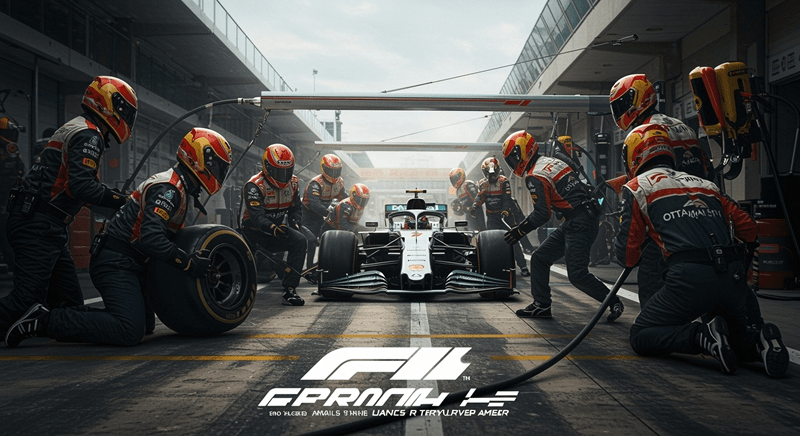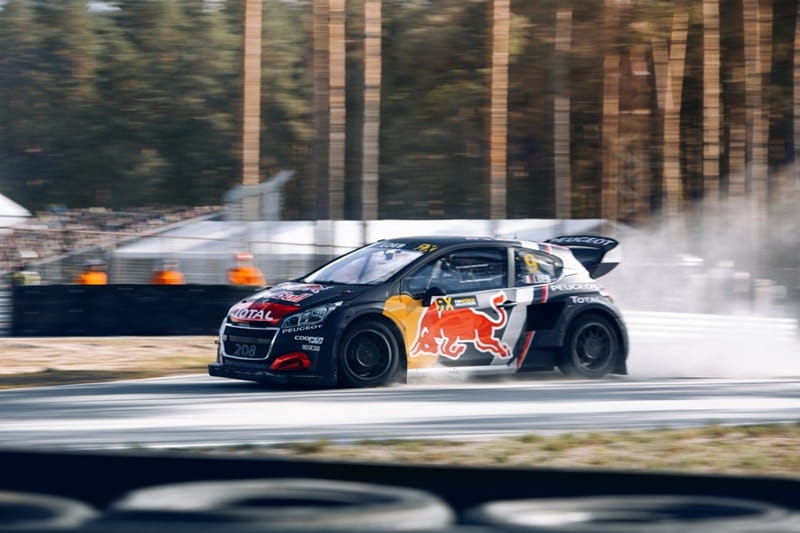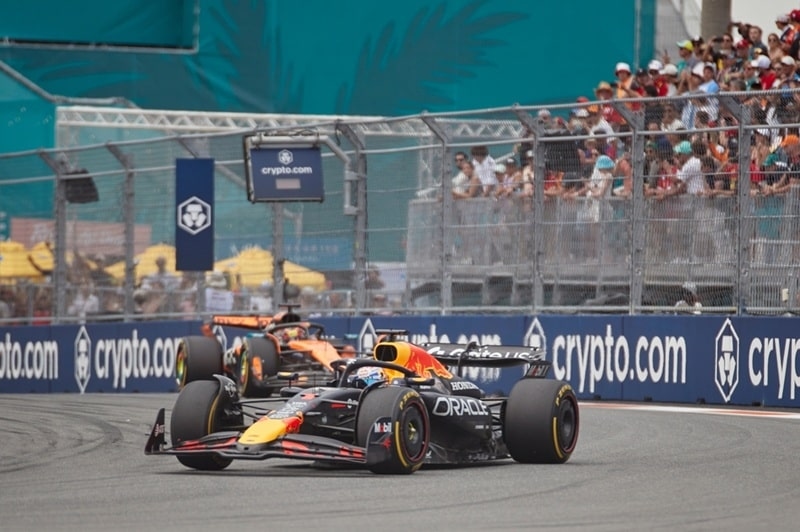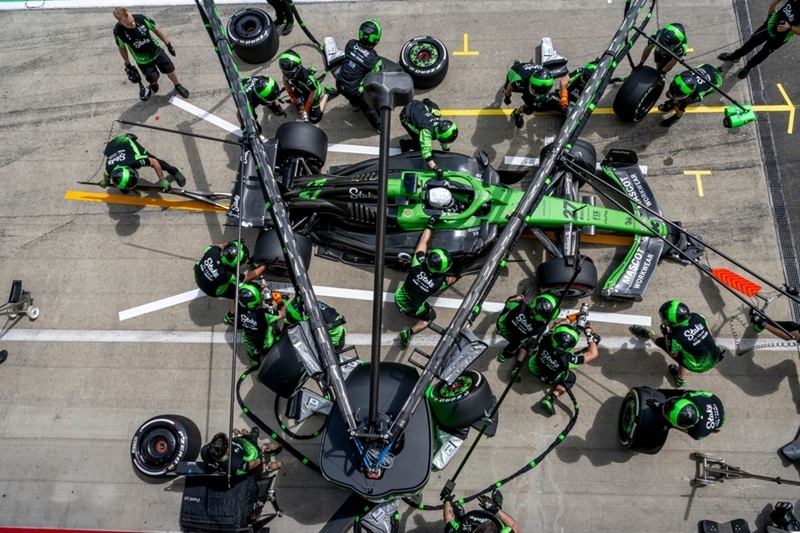Unraveling the Mystery of DNF in Formula 1 Racing Here

Image Source: Pinterest
Watching a Formula 1 race feels like diving into a whole new world, packed with roaring engines, blazing speeds, and some quirky terms that once left us scratching our heads. You know, stuff like DNF, DNS, and DNQ. But what does DNF mean in F1? It's all part of the thrilling world of racing, and I'm here to guide you through it. Let's get those engines running and take a lap around the track, shall we? DNF in Formula 1 stands for "Did Not Finish." It's a term that screams unfulfilled potential, heartbreak, and the tough realities of racing like crashes or mechanical failures. It's a story, and I'm here to tell it.
Deeper Dive Into Did Not Finish (DNF)
So, what's DNF all about in F1? DNF or Did Not Finish is pretty straightforward. It means a driver couldn't finish the race. This can be a real bummer for both the driver and the team, especially if the driver started from pole position. Usually, the main reasons for a DNF are crashes and mechanical issues like:
- Mechanical Issues: Broken suspension, tire punctures, or electrical problems can take a driver out.
- Gearbox Failure: Messes with the gear shifting.
- Engine Failure: Overheating or other problems.
The impact of a DNF goes beyond just the race. It can seriously mess with a driver's standings, points, and overall ranking in the championship. If you're the only one with a DNF, it can feel pretty isolating and frustrating for the whole team.
All Non Completions are Not Counted as DNFs
So, in most sports, 'did not finish' means you didn't cross the line, no matter if you dropped out early or right at the end. But F1 has its own twist. If a driver completes 90% or more of the race, they're considered to have finished. It's a quirky F1 rule that could even mean a driver gets points without actually crossing the finish line. Another quirky rule is about slow cars. Once the winner crosses the line, everyone else has just that lap to finish up. If you're a couple of laps behind, tough luck you don't get to finish the full race distance. These cars aren't allowed to just crawl to the line. So, you'll see something like +2 laps next to their time on the results. They technically could've finished, but the rules say otherwise, so they don't count as a DNF.
You May Also Like: The Ultimate Guide to DRS in F1: How It Works and Its Impact on Racing
DSQ in F1 Means Disqualified

Image Source: YouTube
DSQ stands for "Disqualified," and it's pretty much the worst thing that can happen to a driver. You get disqualified either for breaking technical rules or more serious stuff that could even lead to a lifetime ban. DSQ can be a real headache, especially if more than three drivers are involved, as it can really mess with the race outcomes. In short, DSQ is a permanent stain on a driver's record and affects the whole team.
DNQ in F1 Signifies Did Not Qualify
DNQ stands for "Did Not Qualify," and it means exactly what it sounds like: slow cars. When a driver can't make it through the qualification, they get hit with DNQ. Basically, among all the drivers trying to qualify, those who can't keep up get dropped from the race. Whether it's the main driver or a reserve, not qualifying is a tough pill to swallow. It's a constant battle of skill, speed, and technology, where only the top drivers make it to the race. While DNQ is pretty clear-cut, its effects are far-reaching. Just look at the example of Andrea de Cesaris.
DNS in F1 Stands for Did Not Start
At the start of an F1 race, there's always a buzz. But what if a driver can't start the race? That's what's called DNS F1 (Did Not Start), usually because of a bad car or some technical glitch. When a driver gets a DNS F1 status, they don't get to race, even if they're the third reserve driver. Whether it's the main car or a reserve driver, not having a competitor changes the dynamics and makes it more interesting for the other drivers who are ready to race.
NC Symbolizes Not Classified
NC means a driver is "Not Classified." To earn points, drivers need to be classified after a race. They get classified by completing 90% of the race. Most drivers who DNF (Did Not Finish) will also be NC unless they retire in the last 10% of the race. It might seem trivial, but in rare cases where fewer than 10 drivers finish the race like the 1996 Monaco Grand Prix points go to those who are classified.
Reasons Behind DNFs
We've talked about DNFs (Did Not Finish) in the fast-paced world of Formula 1. But who's at fault when they happen? Did the driver mess up or push the car too hard? Maybe, but that's just one part of the story. Modern F1 cars are super complex, so even a tiny mistake in building the car can lead to a breakdown. That's more on the team than the driver. Other things can cause a DNF too, like bad weather or how other drivers are behaving on the track. Sometimes, it's not even the team's fault. In this high-pressure environment, it's easy to blame one thing, but usually, it's a mix of factors like how well the driver and car work together. Figuring out why a DNF happened is like solving a big puzzle, and it's one of the trickiest but most interesting parts of the sport.
Deliberate Tactical Crashes
Sometimes, a DNF happens because of team tactics. Yeah, it's kind of shady, but it happens. Back in 2008, Nelson Piquet Jr. crashed on purpose to bring out the safety car. His teammate, Fernando Alonso, was struggling, so Piquet crash-bunched up the field, and Alonso ended up winning the race.
Electrical and Mechanical Issues
It's not just crashes that can stop a car. F1 cars are super fragile and can have mechanical or electrical issues. If something breaks and can't be fixed in the pit, it's game over for the driver. Fuel issues are rare, but they can happen if the calculations are off.
Damage to the Vehicle
Damage can happen easily, especially in collisions. Even a little bump with a wall or debris can end a race.
Which F1 driver has the most DNFs ever?

Image Source: F1
An Italian driver, Riccardo Patrese, holds the record for the most DNFs ever. He started 256 races but only finished 111 of them, racking up 145 DNFs, which is 56.6%. Even with all those DNFs, Riccardo Patrese had some big wins. He won six Grand Prix races and finished second in the 1992 championship. The record for the most DNFs in a single season is held by another Italian, Andrea de Cesaris. He set this record in 1987 with 14 DNFs out of 16 races. These days, having that many DNFs in a season is rare because F1 cars have become a lot more reliable.
Similar Reads You May Enjoy: The Ultimate Guide to Formula 1 Terminology and Jargon
Popular Known DNFs
Formula 1 has had some pretty unforgettable DNFs over the years. Here are a few that really stand out:
- Andrea de Cesaris: If anyone knows DNFs, it is Andrea. In the 1987 season, he didn't finish 14 out of 16 races. That's a record that still stands today.
- Lewis Hamilton: The 2016 Malaysian Grand Prix was a heartbreaker for Lewis. Leading the race, his engine failed and it messed up his championship chances that year.
- Hans Heyer: This guy's story at the 1977 German Grand Prix is legendary. He didn't qualify but snuck into the race anyway, only to be disqualified after nine laps. Definitely one of the weirdest DNFs ever.
- Max Verstappen: At the 2017 Azerbaijan Grand Prix, Max had to bow out early due to engine trouble. He was doing great until his car gave up on him.
Total DNFs for Each Driver for the 2024 Season
| DRIVER | 2024 DNFS |
|---|---|
| Alexander Albon | 3 |
| Daniel Ricciardo | 2 |
| Sergio Perez | 2 |
| Logan Sargeant | 2 |
| Lance Stroll | 1 |
| Pierre Gasly | 1 |
| Max Verstappen | 1 |
| Lewis Hamilton | 1 |
| George Russell | 1 |
| Zhou Guanyu | 1 |
| Yuki Tsunoda | 1 |
| Valtteri Bottas | 1 |
| Esteban Ocon | 1 |
| Kevin Magnussen | 1 |
| Nico Hulkenberg | 1 |
| Carlos Sainz | 1 |
| Charles Leclerc | 1 |
| Lando Norris | 1 |
| Oscar Piastri | 0 |
| Fernando Alonso | 0 |
| Liam Lawson | 0 |
Conclusion
In F1, "DNF" (Did Not Finish) is a term that keeps everyone on edge. Imagine working so hard to qualify and lead most of the race, only for a mechanical issue or crash to ruin it all. It's a tough reminder of how unpredictable the sport is. One second you're winning, the next you're just a footnote. That's part of the thrill of watching F1.
Frequently Asked Questions
Has DNF Changed The Results Of A Race?
Yeah, the DNFs have definitely shaken things up in F1 seasons. Like Ayrton Sennas DNF at the 1989 Japanese Grand Prix. Stuff like fuel hose malfunctions during pit stops also show how crucial reliability is in this sport.
Does DNF Affect the Rankings?
A DNF means zero points for that race, which can really hurt a driver's ranking in the championship. It affects both the driver and the team's standings.
Is It Possible That A Vehicle May Not Complete A Race?
Absolutely. Even if a car is leading most of the race, things like slow pit stops, crashes, or driver fatigue can cause it to not finish.
What Is The Difference Between DNF And Retirement?
A DNF (Did Not Finish) means a driver didn't complete the race due to various reasons like accidents or mechanical issues. Retirement is a specific type of DNF, often a strategic decision influenced by factors like the safety car or pit strategy.
This content was created by AI




